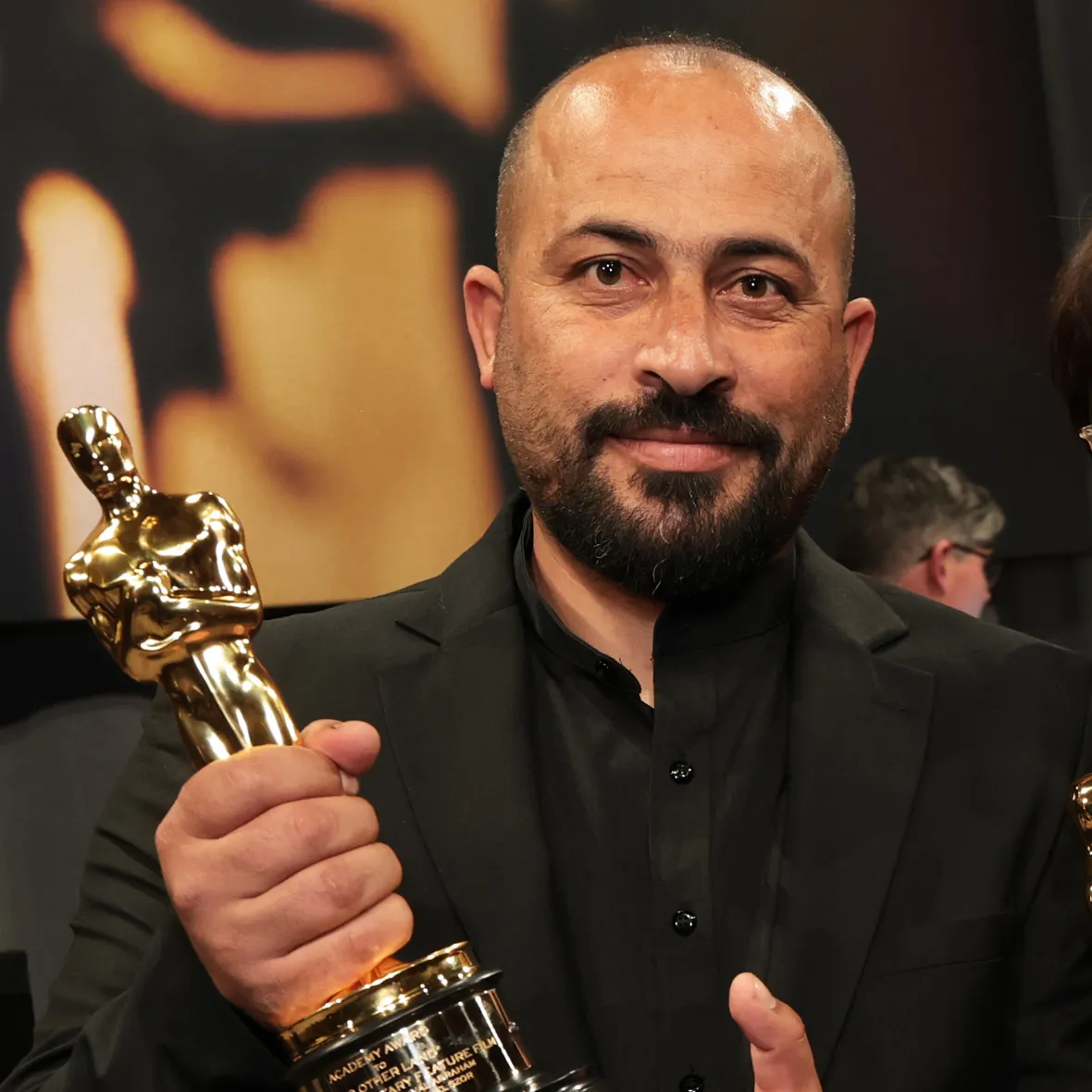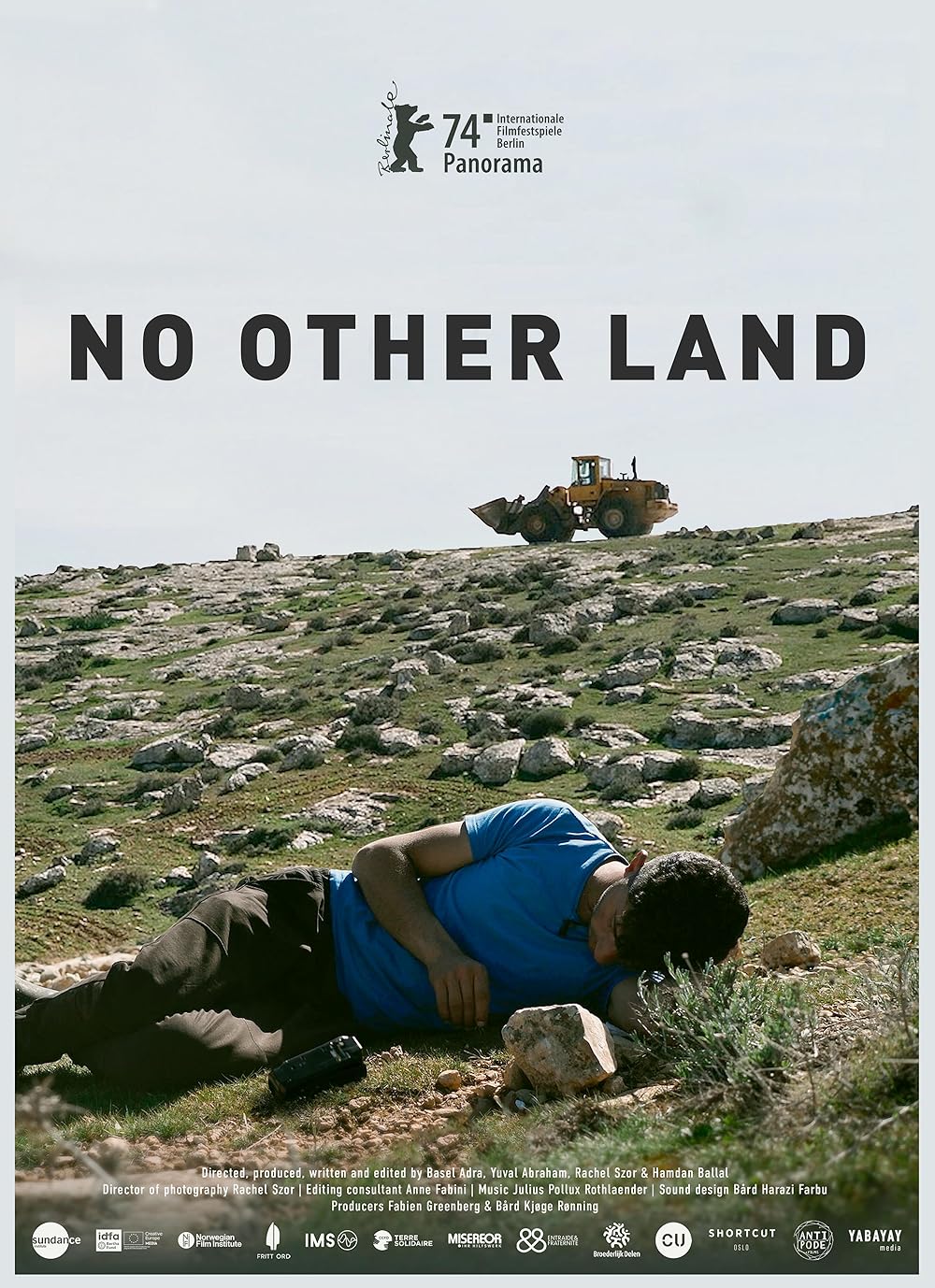Kicked in the head, blindfolded for 20 hours: Oscar-winning Palestinian director shares brutal treatment by Israeli army


Just weeks after accepting an Oscar for No Other Land, a documentary about his West Bank village’s struggle against Israeli occupation, Hamdan Ballal found himself recounting a brutal attack he endured. Speaking to The Associated Press on Tuesday, with visible bruises and bloodstains on his clothes, he described being beaten by an Israeli settler and soldiers the night before.
Hamdan said the settler kicked him in the head “like a football” before soldiers detained him and two other Palestinians. Blindfolded for over 20 hours, he sat on the floor under a blasting air conditioner, enduring repeated kicks and blows from soldiers during their guard shifts. Though he doesn’t speak Hebrew, he recognized his name and the word “Oscar” being mentioned. “I realized they were targeting me specifically,” he said from a West Bank hospital after his release.
The Israeli military did not immediately respond to allegations of abuse. The settler Hamdan identified as his attacker, Shem Tov Luski—who had previously threatened him—denied involvement and claimed Hamdan and others had thrown stones at his car. He insisted he was unaware of Hamdan’s Oscar win.
A Night of Violence in Susiya
The attack occurred Monday night in Susiya, a village in the Masafer Yatta region—featured in No Other Land—which documents Palestinians resisting settler violence and military plans to demolish their homes.
As villagers broke their Ramadan fast at sunset, around two dozen settlers, accompanied by police, entered the area, throwing stones and vandalizing property, according to witnesses. Soon after, about 30 soldiers arrived. Jewish Israeli activists supporting the villagers filmed settlers attacking their car with sticks and stones.
Hamdan had been documenting the destruction before locking himself inside his home with his wife and three young children. “I told myself, if they attack or kill me, I will protect my family,” he said.
He recounted how Luski, accompanied by two soldiers, approached him. Luski allegedly struck him on the head, knocking him to the ground, then continued kicking and punching him while one soldier hit his legs with a gun butt and another pointed a weapon at him. Inside the house, Hamdan’s wife, Lamia Ballal, heard him screaming, “I’m dying!”
Luski claimed he and other settlers were responding to a fellow settler’s call for help, alleging masked Palestinians, including Hamdan, had attacked his car with stones. He denied hitting Hamdan or damaging any property. Though he claimed to have footage proving his account, he refused to share it with the AP, responding instead with expletives.
Detention and Release
A small bloodstain remained outside Hamdan’s home on Tuesday, while his family car’s windows were shattered. Neighbors pointed out a nearby water tank with a gaping hole, allegedly caused by settlers.
Hamdan and the two other detained Palestinians were taken to an army base, where they received minimal medical attention, according to their attorney, Lea Tsemel. After several hours with no access to legal aid, they were transferred to an Israeli police station in Kiryat Arba and released Tuesday afternoon.
“All my body is in pain,” Hamdan said after his release, limping toward a hospital in Hebron. Doctors found bruises, abrasions, and a cut on his chin but no internal injuries. The other detainees also had minor injuries.
Escalating Violence and the Impact of No Other Land
A widely circulated August video shows Luski taunting Hamdan, shouting profanity and warning, “Next time, it won’t be nice.” He also referenced Sde Teiman, a notorious military prison where soldiers have been charged with sexually assaulting detainees, and made an obscene remark before blowing Hamdan a kiss.
The Oscar-winning No Other Land, a joint Israeli-Palestinian production, has drawn criticism from Israeli officials and activists. It highlights the long-standing conflict in Masafer Yatta, which Israel designated a military training zone in the 1980s, leading to demolition orders against Palestinian homes. Settlers have since set up outposts and frequently destroy Palestinian property, often with little intervention from Israeli forces.
Co-director Basel Adra noted an increase in settler and military attacks since the film’s Oscar win. “We’re living in dark days here—in Gaza and across the West Bank. Nobody is stopping this,” he said.
The Broader Conflict
Israel captured the West Bank, Gaza Strip, and East Jerusalem in the 1967 war, with over 500,000 Israeli settlers now living in more than 100 West Bank settlements—considered illegal by most of the international community. Meanwhile, 3 million Palestinians live under Israeli military rule, with limited autonomy under the Western-backed Palestinian Authority.
The ongoing war in Gaza has fueled violence in the West Bank, with increased military raids, settler attacks, and Palestinian assaults on Israelis. Hundreds of Palestinians have been killed, and tens of thousands displaced.
